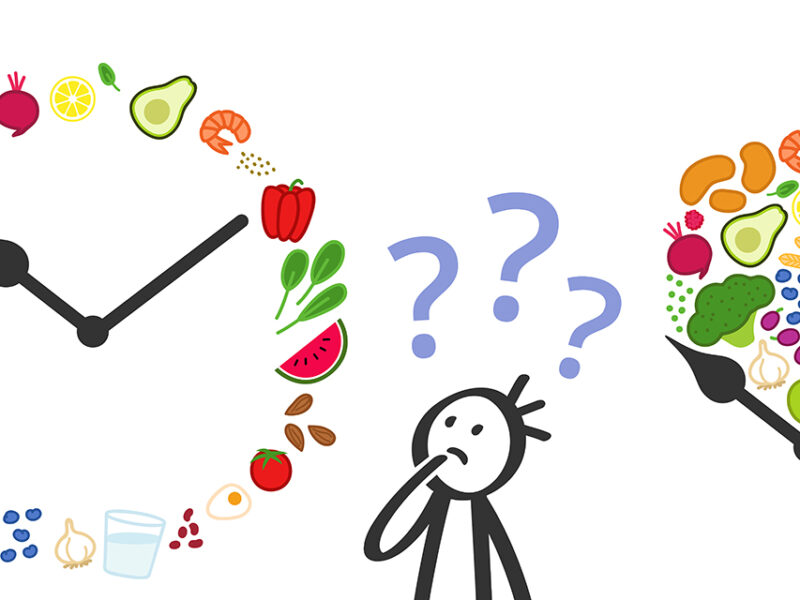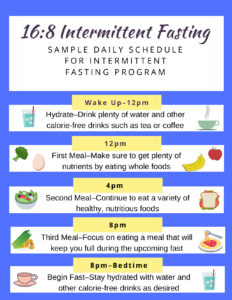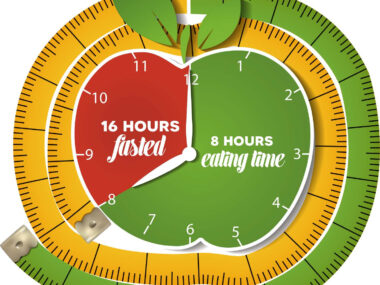16/8 intermittent fasting benefits
The convenience of 16/8 intermittent fasting is one of its main advantages. You can spend less time and money cooking and preparing food each week if you do this.
A wide range of health benefits have been linked to it.
Loss of weight increased
It may be possible to lose weight by limiting your eating window to a few hours a day.
Weight loss may be boosted by fasting, according to research.
Statistically significant weight loss was reported in 11 of 13 studies examining intermittent fasting, according to one review.
Controlled blood sugar levels
Diabetes may be reduced by intermittent fasting by reducing fasting insulin levels and blood sugar levels.
Intermittent fasting, when supervised by a doctor, may be effective for people with type 2 diabetes.
A longer life expectancy
Human studies are limited, but animal studies suggest intermittent fasting can prolong life.
Fasting is believed to improve insulin sensitivity, affect metabolic pathways, and cause behavioral changes that may extend your life. These mechanisms, however, are not fully understood.
CONCLUSION
Intermittent fasting has been shown to improve blood sugar levels, accelerate weight loss, and extend lifespan in both animal and human studies.
16/8 intermittent fasting disadvantages
There are several health benefits associated with 16/8 intermittent fasting, however, it does have some side effects.
Fasting should be started gradually, and if you experience any negative symptoms or concerns, consult your doctor.
Weight gain associated with overeating
Some people may eat more than usual during eating periods if their intake is limited to just eight hours per day. Fasting hours are made up here. Developing unhealthy eating habits, weight gain, and digestive problems may result from this.
Recent research suggests intermittent fasting doesn’t lead to any greater weight loss than regular calorie-restricted diets. A modest weight loss may be achieved with either eating pattern.
In this case, you may prefer to reduce your calorie intake rather than fast intermittently if weight loss is your primary objective. The restriction of intake to a specific time period will prevent overeating.
Symptoms that last for a short time
Starting off, intermittent fasting may cause negative side effects, such as weakness, fatigue, and weakness – but these usually disappear once you get into a routine.
Changes in hormones and menstrual cycles
There is some evidence that intermittent fasting may cause hormonal changes and undereat in animals. Menstrual cycles and fertility may be negatively affected by these changes in people with ovaries.
It should be noted, however, that most of the studies are old and were conducted on animals. For a complete understanding of the effects of intermittent fasting on reproductive health, human studies are required.
Additionally, postmenopausal women may experience different effects from intermittent fasting. Intermittent fasting may help improve weight gain and insulin sensitivity caused by menopause.
CONCLUSION
Food intake restricted to a specific time window may result in weight gain, hunger, and weakness for a short period of time. The fertility of animals has been shown to be impaired by intermittent fasting in older studies.
Would you benefit from 16/8 intermittent fasting?
Coupled with a nutritious diet and a healthy lifestyle, 16/8 intermittent fasting is a safe, easy, and sustainable method of improving your health.
Nevertheless, it shouldn’t replace a balanced diet full of whole foods. Besides, intermittent fasting is not necessary to be healthy.
If you have any underlying health conditions, you should consult your doctor before trying 16/8 intermittent fasting. In the case of diabetes, medication, disordered eating, or low blood pressure disordered eating, this is particularly relevant.
During pregnancy, breastfeeding, or when trying to conceive, intermittent fasting should be avoided.
Consult your doctor if you experience any side effects or concerns while fasting.
In summary
As part of 16/8 intermittent fasting, you eat only eight hours per day and fast for the remaining sixteen.
In addition to boosting weight loss and blood sugar control, it may also prolong life.
Even so, you should drink calorie-free beverages during your fasting periods, such as water, unsweetened teas, and coffee.
Before trying intermittent fasting, speak with your doctor, especially if you have any underlying health issues.
One last thing
Start by trying 16/8 intermittent fasting 1–2 days per week if you are interested and do not have underlying conditions.
If you fast until noon every day, you can choose when to eat and fast. After 8 p.m., stop eating. Decide how you want to proceed after monitoring your energy, hunger, and mood levels for a few days.






